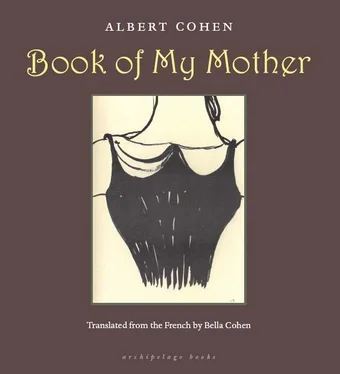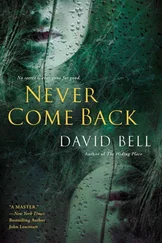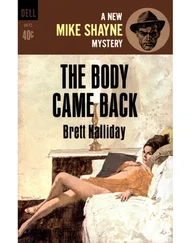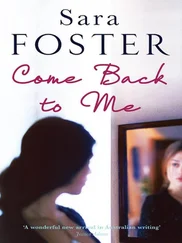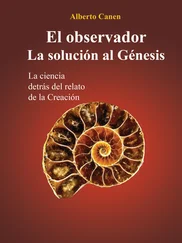Albert Cohen - Book of My Mother
Здесь есть возможность читать онлайн «Albert Cohen - Book of My Mother» весь текст электронной книги совершенно бесплатно (целиком полную версию без сокращений). В некоторых случаях можно слушать аудио, скачать через торрент в формате fb2 и присутствует краткое содержание. Год выпуска: 2012, Издательство: Archipelago Books, Жанр: Современная проза, на английском языке. Описание произведения, (предисловие) а так же отзывы посетителей доступны на портале библиотеки ЛибКат.
- Название:Book of My Mother
- Автор:
- Издательство:Archipelago Books
- Жанр:
- Год:2012
- ISBN:нет данных
- Рейтинг книги:5 / 5. Голосов: 1
-
Избранное:Добавить в избранное
- Отзывы:
-
Ваша оценка:
- 100
- 1
- 2
- 3
- 4
- 5
Book of My Mother: краткое содержание, описание и аннотация
Предлагаем к чтению аннотацию, описание, краткое содержание или предисловие (зависит от того, что написал сам автор книги «Book of My Mother»). Если вы не нашли необходимую информацию о книге — напишите в комментариях, мы постараемся отыскать её.
, which later grew into
. Achingly honest, intimate, moving, it is a tribute to all mothers.
Albert Cohen
Solal
Mangeclous
Belle du Seigneur
Les Valereux
Book of My Mother — читать онлайн бесплатно полную книгу (весь текст) целиком
Ниже представлен текст книги, разбитый по страницам. Система сохранения места последней прочитанной страницы, позволяет с удобством читать онлайн бесплатно книгу «Book of My Mother», без необходимости каждый раз заново искать на чём Вы остановились. Поставьте закладку, и сможете в любой момент перейти на страницу, на которой закончили чтение.
Интервал:
Закладка:
My mother’s love. Nevermore during the night will I go and knock at her door because I cannot sleep and want her to keep me company. With the cruel thoughtlessness of sons, I would knock at two or three in the morning, and always she would reply, waking with a start, that she had not been asleep, that I had not woken her. She would get up at once and come in her dressing gown, staggering with sleep, to offer me her dear assortment of maternal comforts, an egg flip or even almond paste. What could be more natural than to make almond paste for her son at three in the morning? Or else she would suggest piping hot coffee, which we would drink cozily together, chatting endlessly. She saw nothing unreasonable in drinking coffee with me at three in the morning, sitting at the foot of the bed and telling me until dawn tales of old family quarrels — a subject on which she was an expert and in which she took a passionate interest.
No more mother to sit with me until I fall asleep. At night I sometimes put a chair by my bed to keep me company. When you have no mother you make do with a chair. The billionaire of love has become a tramp. If you have insomnia some night, you can fend for yourself, my friend, and you do not knock at any door. And if you remarry and choose that brunette who took your fancy the other day, take care not to knock at her door at three in the morning. You would be sure of a warm reception. “I insist that you respect my sleep,” she would say, steely eyed and square jawed. My mother’s incomparable love. Yes, I know I keep dwelling on it, chewing it over, repeating myself. That is what ruminating grief is like, its jaws weakly in perpetual motion. That is how I take my revenge on life, by harping disconsolately on the kindness of my mother, who lies deep in earth.
My mother’s love, nevermore. She is in her last cradle, the bounteous and gentle giver. Nevermore will she be here to scold me if I worry over nothing. Nevermore will she be here to feed me, to give me life each day, to bring me into the world each day. Nevermore will she be here to keep me company while I shave or while I eat, watching me closely, a passive but attentive sentinel, trying to find out whether I really do like the walnut biscuits she has made me. Nevermore will she tell me not to eat so quickly. I loved having her treat me like a child.
Nevermore the sudden short naps, an old lady with a weak heart in her armchair, and when I asked if she was asleep she would always reply, waking with a start, that she had only closed her eyes for a moment. And she would immediately get up to serve me and suggest eating earlier and heaven knows what else, everything else, all her loving kindness. O Maman, my youth that is no more! Laments, calls of my youth on that distant shore.
For love of me she mastered her fear of animals and came to feel affection for my pretty little cat. She would awkwardly stroke that animal whose motives were a mystery to her, that animal with claws always ready to transgress the Ten Commandments but nonetheless loved by her son and therefore undoubtedly delightful. She stroked it from a distance just the same, her little hand ready to withdraw in a flash. Every instance of her love comes back to me: how she shyly radiated joy when she saw me on the station platform; her awkward little hand the day she wrote down at my dictation, with so many spelling mistakes and so much goodwill, a few pages of a book of mine, with never a clue as to what it was all about. I remember, I remember, and yet this is still not the most valuable of my possessions.
My mother’s love. Nevermore will I have beside me someone who is wholly good. But why are men spiteful? How astounded I am on this earth. Why are they so prompt to hate, so ill tempered? Why do they love to take revenge and hasten to speak ill of you, they who are soon to die, poor things? The ghastly fate of human beings, who arrive on this earth, laugh, move, then suddenly move no more, does not make them good: is this not incredible? And why are they so quick to return rough answers, in a voice like a shriek of a cockatoo, if you speak to them gently, which makes them think you are unimportant — that is to say, not dangerous? And so the tenderhearted must pretend to be cruel in order to be left in peace, or even — and this is tragic — to be loved. Why not just retire to bed and sleep like a log? Sleeping dogs have no fleas. Yes, let’s sleep — sleep has the advantages of death without that one minor drawback. Let’s go and settle down in the cozy coffin. Like a toothless man who takes out his dentures and puts them in a glass of water by his bed, I would like to take my brain out of its box, take out my poor devil of a heart, which beats too fast, too conscientiously, take out my brain and my heart and bathe those two poor billionaires in refreshing solutions while I sleep like the little child I shall be no more. How few humans there are; suddenly the world is empty.
During her stays in Geneva she would always wait for me at the window. No one will wait for me at a window for hours as she did. I can see her face now as she leaned out of the window, her overplump face filled with thoughts of me, so concerned and attentive, her features slightly coarsened by excessive attention, her eyes fixed on the corner of the street. I always think of her as the woman at the window. At the window, on the watch when I came home from work. I would look up and it was heartening to see from below that wait-laden face, that thought waiting for me, and I felt the reassurance of a son. Now when I go out I still have the habit of looking up at the window. But there is never anyone there. Who needs to wait for me at the window?
She would also be at the window when I went out, so as to spend an extra minute with me and gaze at the disappearing figure which was her son, her lot on this earth, her beloved son, whom she would watch as he walked away, watch perhaps with the strange, keen-edged, piercing pity that we feel for those we love and whose secret destitution we know — the same keen pity that I feel for my loved ones when from my window I see them in the street, alone, forlorn and defenseless, walking disasters unaware that I am watching them. And my loved ones are not only my daughter and Marianne and one or two others, but all the men in the street, all such endearing failures whom I love from afar, for close up they do not always smell of roses. Yes, I would look up once or twice at my mother, feeling reassured and protected but not fully understanding my happiness. Now when I go out I still look up, somewhat haggard and forlorn. But there is never anyone at the window.
Nevermore will she nurse me, she, the only one. The only one who never would have been impatient had my illness lasted twenty years and had I been the most insufferable of patients. She alone would have nursed me not out of duty or affection but out of need. For, had I been ill, the only interesting thing she could have found to do for those twenty years would have been to nurse me. That is what she was like. All other women have their dear independent little me : their life, their thirst for personal happiness, their sleep, which they protect so fiercely and woe betide anyone who interferes with it. My mother had no me : she had a son. Little did she mind not sleeping or being weary if I needed her. What have I left to love now with that same love which knows it will never be let down? A pen, a lighter, my cat.
O you, the only one, mother, my mother and the mother of all men, you alone deserve our confidence and our love. All the rest — wives, brothers, sisters, children, friends — all the rest is but a trifle and a leaf in the wind.
There are geniuses at painting and I know nothing about it and I shall not look into it and I am not the least bit interested and I am no judge, nor do I want to be. There are literary geniuses and I know it and the Countess de Noailles is not one of them, nor another person I can think of and certainly not yet another. But what I know even better is that my mother was a genius at loving. Like yours, gentle reader. And I remember everything — everything. How she would watch all night by my bedside when I was ill, her heart-stirring indulgence, and the fine ring which, with some regret but with the weakness of those who love, she had so quickly agreed to buy me. She was so easily persuaded by her harebrained son of twenty. And her secret savings set aside for me when I was a student, and all her schemes to keep my extravagance from my father so that he would not be angry with his spendthrift son. And her naïve pride when that wily tailor had said, to get round her, that her son of thirteen had “class.” How she had savored that horrible word! And her fingers secretly crossed to ward off the evil eye when women gazed at her wondrous little boy. And, during her stays in Geneva, her suitcases always crammed with treats she used to call “throatsoothers,” which she bought on the sly in anticipation of some sudden fancy on my part. And her hand, which she would all at once hold out unexpectedly to shake my hand like that of a friend. “My little kangaroo,” she would say. All that is so near. It was a few thousand hours ago.
Читать дальшеИнтервал:
Закладка:
Похожие книги на «Book of My Mother»
Представляем Вашему вниманию похожие книги на «Book of My Mother» списком для выбора. Мы отобрали схожую по названию и смыслу литературу в надежде предоставить читателям больше вариантов отыскать новые, интересные, ещё непрочитанные произведения.
Обсуждение, отзывы о книге «Book of My Mother» и просто собственные мнения читателей. Оставьте ваши комментарии, напишите, что Вы думаете о произведении, его смысле или главных героях. Укажите что конкретно понравилось, а что нет, и почему Вы так считаете.
